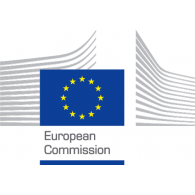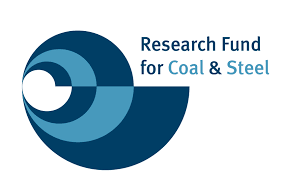

Projekt o akronimie ODYSSEUS, pt. „Integracja łańcucha dostaw węgiel-paliwa ciekłe w świetle oceny ryzyka operacyjnego, ekonomicznego i środowiskowego w złożonych układach geologicznych” to międzynarodowe przedsięwzięcie, dofinansowane ze środków Funduszu Badawczego Węgla i Stali (RFCS) na podstawie Porozumienie grantowego nr : 847333 — ODYSSEUS — RFCS-2018, z dnia 03.05.2019 r. (Zadanie to jest również finansowane za środków budżetu państwa).
Consortium:
- Helmholtz Zentrum Potsdam Deutschesgeoforschungszentrum (GFZ) – Germany– coordinator,
- TECHNISCHE UNIVERSITAET BERGAKADEMIE FREIBERG (TU BAF)– Germany,
- Główny Instytut Górnictwa (GIG) – Poland,
- UNIVERSITY OF LEEDS (ULEEDS) – Great Britain,
- CALAMITES MERNOKI, UZLETI ES TANACSADO KORLATOLT FELELOSSEGU TARSASAG (Calamites Ltd.)– Hungary
- DMT GmbH & CO. KG (DMT) – Germany,
- PUBLIC POWER CORPORATION S.A. (PPC) – Greece,
- PECSI TUDOMANYEGYETEM - UNIVERSITY OF PECS ( UP) – Hungary,
- ETHNIKO KENTRO EREVNAS KAI TECHNOLOGIKIS ANAPTYXIS (CERTH) – Greece
Duration of the project:
01.06.2019 - 31.05.2022
Project description:
Despite the centuries of coal mining in a number of EU countries, about ¾ of the original coal resources in the EU still remain unmined. These are often deep-situated deposits under complex geological conditions. Since EU countries are not rich in liquid hydrocarbon resources, coal deposits may become a source for producing their substitutes.
The current state of numerous methods and techniques in the field of mineral resource extraction, particularly concerning liquids and gases (natural gas and crude oil), as well as of technologies such as CCS, coal gasification (underground and surface), geothermics and in-situ monitoring provides the conditions for actions to integrate various available and highly-developed solutions in order to prepare a concept of a coal-to-liquids supply chain (CLSC). This entails an unconventional coal extraction process with conversion into liquid and gaseous fuel.
Such is the subject of project ODYSSEUS. It will also involve extended operational and economic assessments and environmental risk analyses during and after the unconventional extraction of poorly accessible coal deposits and low-quality coals – i.e. those which are not fit for effective extraction by means of conventional mining methods. It was assumed that the experimental work on the unconventional coal processing method (underground and surface gasification) as well as the studies of the physicochemical parameters of coal and the products and by-products of its conversion planned as part of the project will be carried out for two raw material models fulfilling the criteria adopted for the CLCS technology concept, i.e. hard coal from the Maza-Varalja deposit in Hungary and brown coal from the Kardia deposit in Greece.
Project objectives:
The project partners plan to demonstrate that the current state of various technologies constituting the components of the CLCS process concept enables the industrial production of liquid fuels from coal obtained from European deposits, particularly those where conventional extraction was deemed unprofitable. For this purpose, the individual technological approaches will be subjected to analyses regarding the possibility of integrating the elements of the CLCS technology and its optimisation. The project results will be directly validated by two industrial partners: the Hungarian mining company Calamites Ltd., with a license to operate in the Maza-Varalja deposit, and the leading power and mining company in Greece – Public Power Corporation S.A.. Afterwards it will be determined whether the results can be implemented in the countries of the individual consortium members of project ODYSSEUS.
Head of the project in GIG :
dr Krzysztof Kapusta
e-mail: kkapusta@gig.eu
tel. 32 259 22 23


